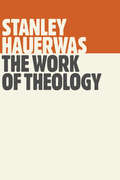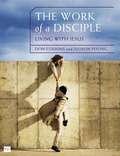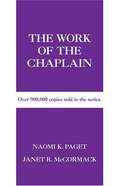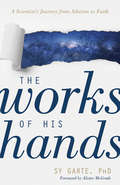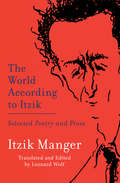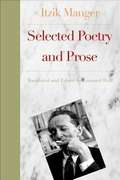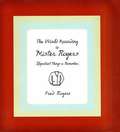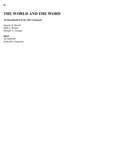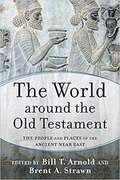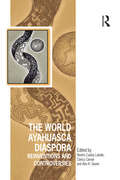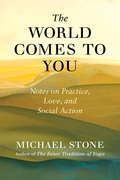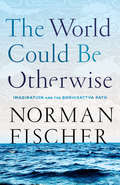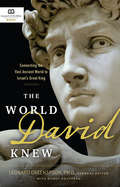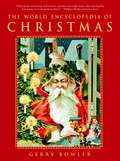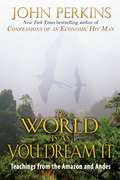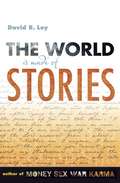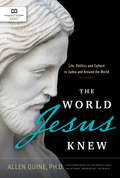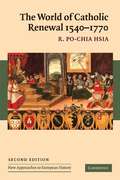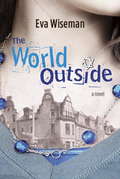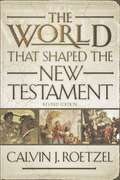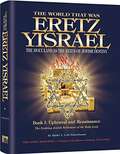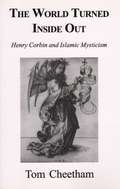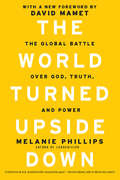- Table View
- List View
The Work of Theology
by Stanley HauerwasA "how-to" book on theology from a world-renowned theologianIn this book Stanley Hauerwas returns to the basics of "doing" theology. Revisiting some of his earliest philosophical and theological views to better understand and clarify what he has said before, Hauerwas explores how theological reflection can be understood as an exercise in practical reason.Hauerwas includes chapters on a wide array of topics, including "How I Think I Learned to Think Theologically," "How the Holy Spirit Works," "How to Write a Theological Sentence," and "How to Be Theologically Funny." In a postscript he responds to Nicholas Healy's recent book Hauerwas: A (Very) Critical Introduction."What we believe as Christians," says Hauerwas, "is quite basic and even simple. But because it is so basic, we can lose any sense of the extraordinary nature of Christian beliefs and practices." In discussing the work of theology, Hauerwas seeks to recover that "sense of the oddness of what we believe as Christians."
The Work of a Disciple: Living Like Jesus
by Judson Poling Don CousinsThe Walking with God series was developed as the curriculum for small groups at Willow Creek Community Church in South Barrington, Illinois. Since its release in 1992, it has been used by churches and small groups to help raise up devoted disciples of Christ. Group members who work through the program will lay a solid foundation for a lifelong walk with God.While small groups may be formed for a variety of purposes, the goal of this curriculum is for groups to produce disciples—fully devoted followers of Christ—by studying God’s Word in community. <P><P> To this end, the goal of the study is to produce disciples who walk with God, have a personal relationship with Jesus, and live in step with the Holy Spirit. It is also to produce believers who live the Word in all areas of life and contribute to the work that God is doing in the local church. Ultimately, the goal is to develop believers who impact the world and are prepared and eager to spread the good news of Christ to others.This material will help develop these attributes in group members. Each lesson includes group Bible study and discussion questions in addition to devotions, reflections, and personal study for use by individuals between the group sessions.
The Work of the Chaplain
by Naomi K. Paget Janet R. MccormackAn ideal starting point for all, including seminarians, who are exploring a call to chaplaincy ministry. Unlike most other books in this field which are specific to one form of chaplaincy and are often written from an autographical viewpoint only, this new resource meets a critical need for an introductory and overview look at chaplaincy in general.
The Works of His Hands: A Scientist’s Journey from Atheism to Faith
by Sy GarteRaised in a militant atheist family, Sy Garte fell in love with the factual world of science. He became a respected research biochemist with an anti-theistic worldview to bolster his work--and he had no intention of seeking a God he didn't believe in. That is, until the very science he loved led him to question the validity of an atheistic worldview.His journey to answer the questions that confronted him drew him into becoming a fully committed Christian, determined to show others the truth: modern science doesn't contradict God at all but instead supports Christianity.In the first half of the book, Sy begins with how his experiences and quest for knowledge as a student and early in his career brought him to question his materialist assumptions. He goes on to reveal how lessons from physics, biology, and human nature--all presented for lay readers to easily understand--actually argue for belief in God. In the second half of the book, Sy looks at the arguments often presented against God in academic and scientific settings and explains the false foundations on which they rest.For those who have been told that the realities of science call for a rejection of God--but can't quite get rid of the feeling that this shouldn't be true--The Works of His Hands is an ideal reminder that the two don't have to be bitter enemies. Instead, this transformative book shares the beauty of the marriage between science and faith--and how, together, they can bring even the most unlikely to salvation.
The World According to Itzik
by Leonard Wolf Itzik Manger David G. RoskiesIn the years between 1929 and 1939, when Itzik Manger wrote most of the poetry and fiction that made him famous, his name among Yiddish readers was a household word. Called the Shelley of Yiddish, he was characterized as being "drunk with talent." This book--the first full-length anthology of Manger's work--displays the full range of his genius in poetry, fiction, and criticism. The book begins with an extensive historical, biographical, and literary critical introduction to Manger's work. There are then excerpts from a novel, The Book of Paradise, three short stories, autobiographical essays, critical essays, and finally, Manger's magnificent poetry--ballads, Bible poems, personal lyrics, and the Megilla Songs. These works, which have the patina of myths acquired ages ago, also offer modern psychological insight and irrepressible humor. With Manger, we make the leap into the Jewish twentieth century, as he recreates the past in all its layered expressiveness and interprets it with modernist sensibilities.
The World According to Itzik: Selected Poetry and Prose
by Leonard Wolf Itzik MangerIn the years between 1929 and 1939, when Itzik Manger wrote most of the poetry and fiction that made him famous, his name among Yiddish readers was a household word. Called the Shelley of Yiddish, he was characterized as being "drunk with talent." This book - the first full-length anthology of Manger's work - displays the range of his genius in poetry, fiction, and criticism. The book begins with an extensive historical, biographical, and literary-critical introduction to Manger's work. The selections include excerpts from his novel The Book of Paradise, three short stories, autobiographical essays, critical essays and foremost, Manger's magnificent poetry - ballads, lyrics, and his bold retellings of the Midrash and Songs of the Megillah. These works, which have the patina of myths acquired ages ago also offer modern psychological insight and irrepressible humor. With Manger we make the leap into the Jewish twentieth century, as he re-creates the past in all its layered expressiveness and interprets it with modernist sensibilities. --BOOK JACKET. Title Summary field provided by Blackwell North America, Inc. All Rights Reserved
The World According to Mister Rogers: Important Things to Remember
by Fred RogersFrom the book: There are few personalities who evoke such universal feelings of warmth as Fred Rogers. An enduring presence in American homes for over 30 years, his plainspoken wisdom continues to guide and comfort many. The World According to Mister Rogers distills the legacy and singular worldview of this beloved American figure. An inspiring collection of stories, anecdotes, and insights--with sections titled Understanding Love, The Courage to Be Yourself, The Challenge of Inner Discipline, and We Are All Neighbors--The World According to Mister Rogers is a testament to the legacy of a man who served and continues to serve as a role model to millions.
The World And The Word: An Introduction To The Old Testament
by Eugene H. Merrill Mark Rooker Michael A. GrisantiThe World and the Word is a fresh introduction to the Old Testament driven largely by the fact that so much Christian preaching and teaching today increasingly ignores what is eighty percent of the Bible. Authors Eugene Merrill, Mark Rooker, and Michael Grisanti work through the world and text of the Old Testament always making three major points: • The Old Testament is a rich source of theology and doctrine that is presupposed by the New Testament. Without it, Christian theology would be seriously deficient. • Mastery of the Old Testament is crucial to an understanding of the New Testament. • The Old Testament offers, by teaching and example, practical principles of belief and behavior for contemporary times. Who God was and what He did then can be replicated in the lives of men and women today.
The World Around the Old Testament: The People and Places of the Ancient Near East
by Bill T. Arnold Brent A. StrawnWhat people groups interacted with ancient Israel? Who were the Hurrians and why do they matter? What do we know about the Philistines, the Egyptians, the Amorites, the Assyrians, the Babylonians, and others? <p><p> In this up-to-date volume, leading experts introduce the peoples and places of the world around the Old Testament, providing students with a fresh exploration of the ancient Near East. The contributors offer comprehensive orientations to the main cultures and people groups that surrounded ancient Israel in the wider ancient Near East, including not only Mesopotamia and the northern Levant but also Egypt, Arabia, and Greece. They also explore the contributions of each people group or culture to our understanding of the Hebrew Scriptures. <p><p> This supplementary text is organized by geographic region, making it especially suitable for the classroom and useful in a variety of Old Testament courses. Approximately eighty-five illustrative items are included throughout the book.
The World Ayahuasca Diaspora: Reinventions and Controversies (Vitality of Indigenous Religions)
by Beatriz Caiuby Labate Clancy Cavnar Alex K. GearinAyahuasca is a psychoactive substance that has long been associated with indigenous Amazonian shamanic practices. The recent rise of the drink’s visibility in the media and popular culture, and its rapidly advancing inroads into international awareness, mean that the field of ayahuasca is quickly expanding. This expansion brings with it legal problems, economic inequalities, new forms of ritual and belief, cultural misunderstandings, and other controversies and reinventions. In The World Ayahuasca Diaspora, leading scholars, including established academics and new voices in anthropology, religious studies, and law fuse case-study ethnographies with evaluations of relevant legal and anthropological knowledge. They explore how the substance has impacted indigenous communities, new urban religiosities, ritual healing, international drug policy, religious persecution, and recreational drug milieus. This unique book presents classic and contemporary issues in social science and the humanities, providing rich material on the bourgeoning expansion of ayahuasca use around the globe.
The World Comes to You: Notes on Practice, Love, and Social Action
by Michael StoneShort, potent lessons on living the yoga and Buddhist paths in the midst of everyday life—by teacher Michael Stone.These fresh, intimate teachings by innovative dharma and yoga teacher Michael Stone offer essential wisdom for living with compassion and responsiveness in the midst of everyday life in an imbalanced world.Stone reminds us in a clear and encouraging way that as we turn wholeheartedly toward what is, with our bodies, hearts, and minds, we discover innate resilience and enliven our creative ability to respond. Practice, he shows, is always both internal and external.
The World Could Be Otherwise: Imagination and the Bodhisattva Path
by Norman FischerAn imaginative approach to spiritual practice in difficult times, through the Buddhist teaching of the six paramitas or "perfections"--qualities that lead to kindness, wisdom, and an awakened life.In frightening times, we wish the world could be otherwise. With a touch of imagination, it can be. Imagination helps us see what’s hidden, and it shape-shifts reality’s roiling twisting waves. In this inspiring reframe of a classic Buddhist teaching, Zen teacher Norman Fischer writes that the paramitas, or “six perfections”—generosity, ethical conduct, patience, joyful effort, meditation, and understanding—can help us reconfigure the world we live in. Ranging from our everyday concerns about relationships, ethics, and consumption to our artistic inspirations and broadest human yearnings, Fischer depicts imaginative spiritual practice as a necessary resource for our troubled times.
The World David Knew: Connecting the Vast Ancient World to Israel's Great King
by Randy Southern Leonard Greenspoon Museum of the Bible BooksIMMERSE YOURSELF IN THE CAPTIVATING WORLD OF 1000 BC AS EVERYONE WATCHES THE SMALL NATION OF ISRAEL MAKE ITS NEXT MOVE AFTER THE DEATH OF ITS BELOVED KING DAVID. Shepherd. Warrior. King. Psalmist. Father. Fugitive. Hero. Villain. No single word is sufficient to encompass Israel's King David. The World David Knew offers a snapshot of life during this key period in the nation's history. The World David Knew provides you with vivid details of life in 1000 BC, including elements of numerous cultures around the world. Hold your breath as some of the biggest political power shifts in history are made. Celebrate along with the people of Israel as they go to weddings and holiday feasts. Understand how nations traded goods, services, and money. What will the future hold for the nation of Israel, and the greater world?
The World Encyclopedia of Christmas
by Gerry BowlerAt last, a truly comprehensive look at Christmas and all of its customs with its long history around the world. The World Encyclopedia of Christmas contains articles on the history of Christmas baking, drinking, and merrymaking, and Christmas dramas, music, literature, art, and films. It includes entries on the evolution of the Christmas tree and the Christmas card, gift-giving, and decoration of church and home. There are profiles of the many gift-bringers, from Santa Claus to Babouschka, and miraculous tales of the numerous saints associated with the season. And there are histories of seasonal celebrations and folk customs around the world, from the United States to Japan, from Egypt to Iceland. Who, for example, knew the links between the Punch and Judy show and Christmas? That the medieval Paradise tree hung with tempting apples was the forerunner of the Christmas tree? About the Peerie Guizers, who terrorized the Shetland Islands, going door-to-door for Christmas charity? Or what Freudians make of our interest in Christmas stockings and Santa’s entrance through the chimney? There are detailed accounts of Wren Boys and Star Boys, mumming and wassailing, the Feast of Fools and the origins of eggnog. And of course stories of the Nativity and legends of the Magi. With beautifully illustrated accounts ranging from the pagan roots of Yuletide, through the birth of Christ, and the long and fascinating history of the festival ever since, The World Encyclopedia of Christmas, is a rich and continually surprising array of religious and secular history, trivia, literature, and art. This wonderful book deserves to find a home with every family that celebrates Christmas. From the Hardcover edition.
The World Is As You Dream It: Teachings from the Amazon and Andes
by John PerkinsAfter 'Hit Man'The New York Times bestseller Confessions of an Economic Hit Man documents John Perkins’ extraordinary career as a globe-trotting economic hit man. Perkins’ insider’s view leads him to crisis of conscience--to the realization that he must devote himself to work which will foster a world-wide awareness of the sanctity of indigenous peoples, their cultures, and their environments. Perkins’ books demonstrate how the age-old shamanic techniques of some of the world’s most primitive peoples have sparked a revolution in modern concepts about healing, the subconscious, and the powers each of us has to alter individual and communal reality.Deep in the rain forests and high in the Andes of Ecuador, native shamans teach the age-old technique of dream change, a tradition that has kept the cultures of the Otavalans, Salasacans, and Shuar alive despite centuries of conquest. Now these shamans are turning their wisdom and power to the problem of curing a new kind of illness--that created by the industrial world’s dream of dominating and exploiting nature. John Perkins tells the story of these remarkable shamans and of the U.S. medical doctors, psychologists, and scientists who have gone with him to learn the techniques of dream change. These shamanic teachings have sparked a revolution in modern concepts about healing, the subconscious, and the powers each of us has to alter individual and communal reality.
The World Is Awake: A Celebration of Everyday Blessings
by Linsey DavisInspire children to be thankful for all of God&’s blessings with this joyful celebration of the simple pleasures all around us. Perfect for sharing at bedtime or story time, The World Is Awake gives children (and their parents) a sense of awe and wonder at the world around them.Linsey Davis, New York Times bestselling author and Emmy Award-winning ABC News anchor, invites us to celebrate the everyday miracles that surround us in this inspiring and diverse picture book. From blooming flowers in the backyard to the roaring animals at the zoo to the breeze in the evening trees … the world is awake!Now also available as a board book, The World Is Awake:features playful and heartwarming read-aloud rhymes from Emmy Award-winning ABC News anchor Linsey Davisincludes whimsical, joy-filled illustrations from bestselling artist Lucy Flemingis a great board book for ages 0-4, preschool, kindergarten and early elementary age kidscelebrates diversity and inspires gratitude for God&’s blessingsmakes a wonderful gift for birthdays, Easter, and other gift-giving holidaysCelebrate your everyday blessings through The World Is Awake.Look for additional inspirational children&’s picture books and audio products from award-winning author Linsey Davis:Smallest Spot of a DotHow High is HeavenStay This Way ForeverOne Big HeartThe Linsey Davis Children&’s Audio Collection
The World Is Made of Stories
by David R. LoyIn this dynamic and utterly novel presentation, David Loy explores the fascinating proposition that the stories we tell--about what is and is not possible, about ourselves, about right and wrong, life and death, about the world and everything in it--become the very building blocks of our experience and of reality itself. Loy uses an intriguing mixture of quotations from familiar and less-familiar sources and brief stand-alone micro-essays, engaging the reader in challenging and illuminating dialogue. As we come to see that the world is made--in a word--of stories, we come to a richer understanding of that most elusive of Buddhist ideas: shunyata, the "generative emptiness" that is the all-pervading quality inherent to all mental and physical forms in our ever-changing world. Reminiscent of Zen koans and works of sophisticated poetry, this book will reward both a casual read and deep reflection.
The World Jesus Knew: Life, Politics, and Culture in Judea and Around the World
by Randy Southern Museum of the Bible Books Seth PolingerJesus lived in a time of great tension and upheaval. It is estimated there were approximately 700,000 Jews then living in Israel under the Roman occupation. Discover the complexities of life in a tiny Nazereth village. Compelling narrative brings to light the rapidily developing cultures throughout the world. The World Jesus Knew immerses the modern reader in the worldwide drama of the first century and depicts an era of global conquest and domination.
The World Of Catholic Renewal, 1540-1770
by R. Po-chia HsiaThis second edition features an updated synthesis of the vast scholarship on the history of Catholicism from the Council of Trent in the middle of the sixteenth century to the suppression of the Society of Jesus in the eighteenth century. The book covers the doctrinal and ecclesiastical renewal after Trent and the progress of Catholic reconquest in various lands. It also analyses the social composition of the Tridentine clergy and the papal curia and studies the making of early modern sainthood and the enclosure of religious women. An additional chapter on The Catholic Book as well as an updated bibliography are included.
The World Outside
by Eva WisemanAn informative and powerful novel, The World Outside explores the life of a teenage girl in a fundamentalist Hasidic community who dreams of a different future. Seventeen-year-old Chanie Altman lives the protected life of a Lubavitcher Hasidic girl in Crown Heights, Brooklyn, New York, in 1991. Religion is the most important aspect of her life, and, like other Lubavitcher girls, she is expected to attend a seminary and to marry as soon as she graduates from high school. But Chanie has a beautiful voice and dreams of becoming an opera singer - a profession forbidden to a Hasidic girl. When she meets David, a non-Hasidic Jewish boy, he opens the portals to the world outside her fundamentalist community. The Crown Heights riots break out, and the Lubavitchers are put under siege by their African-American neighbors. A tragedy occurs. Will Chanie stay in the fundamentalist community she has always known in a life that has been prescribed for her, or will she leave it behind to follow her dreams?
The World That Shaped the New Testament
by Calvin J. RoetzelIn this book, Calvin Roetzel explores the social, political, religious, and intellectual environment of the New Testament writers. Roetzel maps the major features of the first-century landscape so that the student may be able to view the whole, and through the whole gain new perspective on and insight into each part. Now updated with the most current scholarship and with revisions taking into account archeological findings, this is the best available introduction to the subject. Expanded materials include discussion of the social structure of Roman society, political dimensions of Pharisaism, Hellenistic religious expression, the Jewish Diaspora, the influence of the Septuagint on the Gospel writers and Paul, and women in antiquity. Pictures are integrated into the text at relevant points, the end of each chapter contains suggestions for further reading, and there is also a current and comprehensive bibliography of topics and authors.
The World That Was: Eretz Yisrael - The Holy Land As The Nexus Of Jewish Identity
by Rabbi A. Leib ScheinbaumTheWorld That Was: Eretz Yisrael is the riveting story of the unbreakable bond between Hashem, His People, and His beautiful, Holy Land.
The World Turned Inside Out
by Tom CheethamAn exploration of the works and ideas of Henry Corbin who introduced the notion of the imaginal to the West as well as explaining the mysticism of the Sufis.
The World Turned Upside Down
by Melanie PhillipsIn what we tell ourselves is an age of reason, we are behaving increasingly irrationally. An astonishing number of people subscribe to celebrity endorsed cults, Mayan armageddon prophecies, scientism, and other varieties of new age, anti-enlightenment philosophies. Millions more advance popular conspiracy theories: AIDS was created in a CIA laboratory, Princess Diana was assassinated, and the 9/11 attacks were an inside job.In The World Turned Upside Down, Melanie Phillips explains that the basic cause of this explosion of irrationality is the slow but steady marginalization of religion. We tell ourselves that faith and reason are incompatible, but the opposite is the case. It was Christianity and the Hebrew Bible, Phillips asserts, that gave us our concepts of reason, progress, and an orderly world on which science and modernity are based.Without its religious traditions, the West has drifted into mass derangement where truth and lies, right and wrong, victim and aggressor are all turned upside down. Scientists skeptical of global warming are hounded from their posts, Israel is demonized, and the US is vilified over the war on terror-all on the basis of blatant falsehoods and obscene propaganda.Worst of all, asserts Phillips, this abandonment of rationality leaves the West vulnerable to its legitimate threats. Faced with the very real challenges of spiraling demographics and violent, confrontational Islamism, the West is no longer willing or able to defend the modernity and rationalism that it once brought into being.
